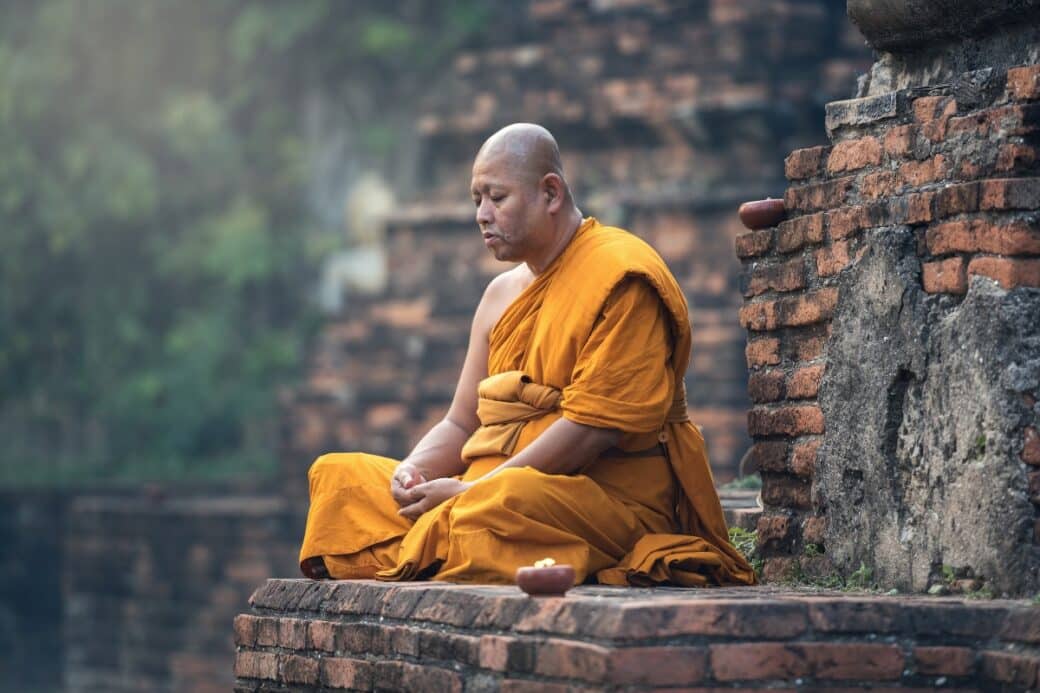You’ve probably heard of Transcendental Meditation, but have you ever wondered if it’s legitimate? In this article, we’ll dive into the practice, exploring its origins, techniques, and benefits. Whether you’re a skeptic or simply curious about this popular form of meditation, join us as we unravel the truth behind Transcendental Meditation and discover if it lives up to the hype.
Understanding Transcendental Meditation
Transcendental Meditation (TM) is a technique that has gained popularity in recent years for its potential to promote relaxation, reduce stress, and enhance overall well-being. It is a form of mantra meditation, meaning that it utilizes the repetition of a specific word or phrase, known as a mantra, to quiet the mind and achieve a state of deep rest. In this article, we will delve into the origins, principles, and unique aspects of TM, as well as explore its procedure, the science behind it, and the benefits it offers. We will also address common criticisms and controversies related to TM, highlight prominent practitioners, discuss the learning process, provide a comparative analysis, address misconceptions, and shed light on the future of this practice.
Origins of Transcendental Meditation
TM traces its roots back to ancient Vedic traditions in India. The practice was revitalized and popularized in the 1950s and 1960s by Maharishi Mahesh Yogi, an Indian guru and spiritual leader. Maharishi introduced TM to the Western world and founded the organization known as the Transcendental Meditation movement. Since then, millions of people worldwide have embraced this practice, including notable celebrities and public figures.
The Principle Behind the Practice
The fundamental principle of TM is the belief that each individual has a reservoir of unlimited, pure consciousness within them. Through the practice of meditation, one can tap into this inner source of peace and creativity, transcending the boundaries of ordinary thinking and experiencing a state of pure awareness. TM aims to effortlessly and naturally guide the mind to this state, allowing the individual to achieve deep relaxation, reduce stress, and unlock their full potential.
Unique Aspects of Transcendental Meditation
One unique aspect of TM is its emphasis on effortlessness. Unlike many other forms of meditation, TM does not require concentration or control of the mind. Instead, practitioners are encouraged to effortlessly repeat their mantra without actively trying to focus or suppress thoughts. This approach makes TM accessible and appealing to individuals of all backgrounds, including those who may struggle with other forms of meditation.
Additionally, TM stands out for its non-religious and non-sectarian nature. While it has its roots in ancient Vedic traditions, TM is not affiliated with any particular religion or belief system. It can be practiced by individuals of any religious or spiritual background, as well as those who identify as agnostic or atheist.
The Procedure of Transcendental Meditation

Step-by-step Guide to Transcendental Meditation
To begin practicing TM, it is recommended to find a certified instructor who can guide you through the learning process. The first step typically involves attending an introductory lecture or seminar, where you will learn about the principles and benefits of TM. Afterward, if you decide to proceed, you will receive personalized instruction during a one-on-one session with a qualified teacher.
During this session, you will learn your unique mantra, which is selected based on various factors including age and gender. The teacher will guide you on how to use the mantra correctly and provide instructions on proper posture and technique.
Once you have received instruction, you can begin practicing TM on your own. The technique involves sitting comfortably in a quiet space with your eyes closed. You softly and effortlessly repeat the mantra in your mind for about 20 minutes, twice a day. It is recommended to practice TM in a designated, peaceful area where you won’t be interrupted.
The Role of Mantras
Mantras play a crucial role in TM as they provide a focal point for the mind. The specific mantras used in TM are carefully chosen based on their sound vibrations and their ability to effortlessly lead the mind to a state of deep relaxation. The mantras are kept secret and are not disclosed to the public, as their significance lies in the experience they evoke rather than their literal meaning.
Common Challenges and Overcoming Them
While TM is generally regarded as a simple practice, beginners may encounter challenges along the way. One common challenge is having a busy or racing mind during meditation. It’s important to remember that thoughts are a natural part of the meditation process, and attempting to forcefully suppress them can be counterproductive. Instead, gently redirect your attention back to the mantra whenever you become aware of your thoughts, allowing them to effortlessly fade away.
Maintaining consistency in practice can also be a challenge for some individuals. To overcome this, it can be helpful to establish a regular meditation routine, incorporating TM into your daily schedule. Finding a designated time and place for your meditation practice can help create a sense of ritual and make it easier to maintain consistency.
The Science Behind Transcendental Meditation
Research on its Effectiveness
Over the years, extensive research has been conducted to explore the effectiveness of TM in various aspects of well-being. Numerous studies have shown that regular practice of TM can reduce stress, anxiety, and symptoms of depression, improve sleep quality, and enhance overall mental health. Some studies have also suggested that TM may have positive effects on cardiovascular health, blood pressure regulation, and immune function.
Neuroscience Perspective
From a neuroscience perspective, studies using brain imaging techniques have revealed that TM is associated with changes in brain activity and connectivity. These changes are consistent with a state of relaxation, reduced mental chatter, and increased coherence and integration within the brain.
Physiological Changes During Transcendental Meditation
During TM, the body undergoes a variety of physiological changes that contribute to the deep relaxation and rejuvenation experienced by practitioners. Heart rate and blood pressure tend to decrease, while cortisol levels, an indicator of stress, decrease as well. The body enters a state of restful alertness, promoting a state of calmness and reduced hyperactivity of the sympathetic nervous system.
Benefits of Practicing Transcendental Meditation
Mental Health Benefits
TM has shown promising results in reducing symptoms of anxiety and depression, enhancing emotional well-being, and improving overall mental health. The deep rest experienced during TM can help restore balance to the nervous system and provide relief from the daily stressors of life. By quieting the mind and reducing mental chatter, TM can also improve focus, concentration, and cognitive performance.
Physical Health Benefits
In addition to the mental health benefits, TM has been associated with a range of physical health benefits. Research suggests that regular practice of TM may lead to improvements in cardiovascular health, including reduced blood pressure, improved cholesterol profiles, and decreased risk of heart disease. TM has also shown potential in boosting the immune system, improving sleep quality, and reducing the frequency and severity of migraines.
Impact on Quality of Life and Wellbeing
By promoting relaxation, reducing stress, and enhancing overall mental and physical health, TM can have a significant impact on an individual’s quality of life and overall well-being. Practitioners often report increased energy, improved relationships, enhanced creativity, and a greater sense of inner peace and fulfillment.
Critical View and Controversies Related to Transcendental Meditation
Criticisms of the Practice
Despite its popularity and numerous positive testimonials, TM has faced criticisms and skeptics. Some skeptics argue that the technique itself is not unique and that similar benefits can be achieved through other forms of meditation or relaxation techniques. Critics also question the high cost associated with learning TM, as well as the secrecy surrounding the mantras used in the practice.
Controversies Associated with the Transcendental Meditation Movement
The Transcendental Meditation movement, led by Maharishi Mahesh Yogi, has also attracted controversies throughout its history. Some critics argue that the organization has a cult-like structure, with an overemphasis on the authority of the leader and questionable financial practices. Additionally, the movement’s claims of achieving world peace through mass meditation have been met with skepticism by some.
Responses to the Criticisms
Proponents of TM argue that despite the similarities with other forms of meditation, TM offers a unique approach and results due to its emphasis on effortlessness and the specific mantras used. They also acknowledge the controversies surrounding the TM movement but assert that these issues should not overshadow the potential benefits of the practice itself. The organization has made efforts to address and rectify past controversies, and many practitioners attest to the positive impact TM has had on their lives.
Transcendental Meditation Prominent Practitioners
Celebrities Who Practice Transcendental Meditation
Transcendental Meditation has garnered the endorsement and support of numerous celebrities and public figures. Prominent practitioners include Oprah Winfrey, Hugh Jackman, Jerry Seinfeld, and Katy Perry, to name just a few. These individuals have often spoken publicly about their positive experiences with TM and how it has helped them manage stress, enhance creativity, and improve overall well-being.
Testimonials and Experiences
Beyond the realm of celebrities, countless individuals around the world have shared their personal testimonials and experiences with TM. Many report reduced stress levels, improved mental clarity, enhanced creativity, and an increased sense of inner peace and fulfillment. These testimonials, along with scientific research, contribute to the growing recognition and acceptance of TM as a legitimate practice for personal growth and well-being.
Impact on Their Lives and Careers
TM has been credited by many celebrities and public figures as a significant factor in their personal and professional success. They attribute improved focus, increased creativity, and enhanced overall well-being to their regular practice of TM. By incorporating TM into their lives, these individuals have found a valuable tool for managing stress, maintaining balance, and unlocking their full potential.
Learning Transcendental Meditation
Finding a Certified Instructor
Learning TM typically involves finding a certified instructor who has undergone extensive training and is authorized by the Transcendental Meditation movement. The official website of the organization provides a search tool to help individuals find a qualified instructor in their area.
The Learning Process
After finding a certified instructor, individuals typically attend an introductory lecture or seminar where they learn about the principles and benefits of TM. If they choose to proceed, they undergo personalized instruction during a one-on-one session with the teacher. This session involves learning the specific mantra and receiving guidance on correct technique and proper posture.
Cost Implications
One aspect often criticized about TM is the cost associated with learning the practice. The instruction is not free, but the fee structure varies depending on factors such as location and the individual’s ability to pay. Scholarship programs are available for those who may not be able to afford the full fee. Proponents argue that the cost reflects the exceptional quality of the instruction, ongoing support, and the organization’s commitment to maintaining the integrity and effectiveness of TM.
Comparative Analysis: Transcendental Meditation and Other Forms of Meditation
Transcendental Meditation vs. Mindfulness
One common comparison made is between TM and mindfulness meditation. While both practices aim to promote relaxation and reduce stress, they differ in their approach. TM involves the repetition of a mantra to quiet the mind, while mindfulness meditation entails non-judgmental awareness of one’s thoughts, emotions, and present moment experience. Both practices have shown benefits in research, and the choice between them ultimately depends on individual preferences and goals.
Transcendental Meditation vs. Zen
Another comparison often made is between TM and Zen meditation. Zen meditation, rooted in Buddhist traditions, involves seated meditation practice focusing on breath and posture. TM, on the other hand, is more mantra-based and does not require the same level of concentration and discipline as Zen meditation. Again, the choice between the two depends on personal inclination and the desired outcomes of the practice.
Choosing the Right Form of Meditation for You
When deciding on the form of meditation that suits you best, it is essential to consider personal preferences, goals, and individual circumstances. Exploring different forms of meditation, seeking guidance from experienced practitioners or instructors, and reflecting on what resonates with you the most can help you find the right fit.
Common Misconceptions about Transcendental Meditation
Is it a Religion or a Cult?
One common misconception about TM is that it is a religion or cult. However, TM is a secular practice that can be embraced by individuals of any religious or non-religious background. It does not require adherence to specific religious beliefs or rituals and is compatible with a wide range of spiritual and philosophical perspectives.
Does it Require Specific Beliefs or Lifestyle Changes?
TM does not require practitioners to adopt specific beliefs or make drastic lifestyle changes. It is a practice that can be incorporated into one’s daily routine without disrupting existing commitments or practices. TM complements and supports personal growth and well-being, but it does not dictate or impose specific sets of beliefs or lifestyle choices.
Clarifying Misunderstandings
To clarify misconceptions about TM, it is important to emphasize its non-religious and non-sectarian nature. The practice is accessible to individuals of all backgrounds and is designed to enhance well-being, reduce stress, and promote personal growth. By dispelling misunderstandings, individuals can approach TM with an open mind, allowing themselves to benefit from this practice without being swayed by misinformation.
The Future of Transcendental Meditation
Transcendental Meditation in Health Care and Education
The potential applications of TM in various fields, including health care and education, have gained attention in recent years. Research exploring the integration of TM into these settings has shown promising outcomes. TM has demonstrated benefits in reducing burnout and improving overall well-being among healthcare professionals. In education, studies have highlighted its potential to enhance academic performance, reduce stress among students, and promote socio-emotional development.
Ongoing Research and Discoveries
The scientific community continues to invest in research regarding TM and its effects on mental and physical health. Ongoing studies aim to further understand the underlying mechanisms of TM, explore its impact on specific populations and conditions, and provide a deeper insight into the potential benefits it offers. As more discoveries are made, the scientific evidence supporting TM’s effectiveness is expected to expand.
Challenges and Opportunities Ahead
While TM has gained popularity and recognition, challenges remain in terms of accessibility, affordability, and addressing the criticisms associated with the practice. However, opportunities for growth and development also exist. As more individuals and organizations recognize the potential of TM, efforts are being made to make it more widely available and to further refine its teaching methods. The future of TM holds promise for continued expansion, integration into various fields, and a deeper understanding of its potential to enhance well-being and personal growth.
In conclusion, Transcendental Meditation offers a unique approach to achieving deep relaxation, reducing stress, and promoting overall well-being. With its origins in ancient traditions, TM has evolved over the years and gained recognition for its potential benefits. Research supports its effectiveness in improving mental and physical health, and numerous individuals, including celebrities, have shared their positive experiences. While criticisms and controversies exist, many practitioners attest to the positive impact TM has had on their lives. Finding a certified instructor, learning the method, and incorporating TM into one’s routine can ultimately provide a valuable tool for achieving inner peace, personal growth, and improved quality of life. As the popularity and scientific understanding of TM continues to grow, the future holds opportunities for further exploration, integration, and potential benefits in diverse areas such as health care, education, and personal development.
Sources
- https://www.reddit.com/r/Meditation/comments/2t3p0p/is_transcendental_meditation_a_scam/
- https://www.mensyogajournal.com/blog/is-transcendental-meditation-a-con-a-deep-dive
- https://www.quora.com/Why-does-Transcendental-Meditation-smell-like-a-scam-Is-this-trademarked-paid-program-for-real-or-are-they-piggybacking-on-the-general-meditation-trend




